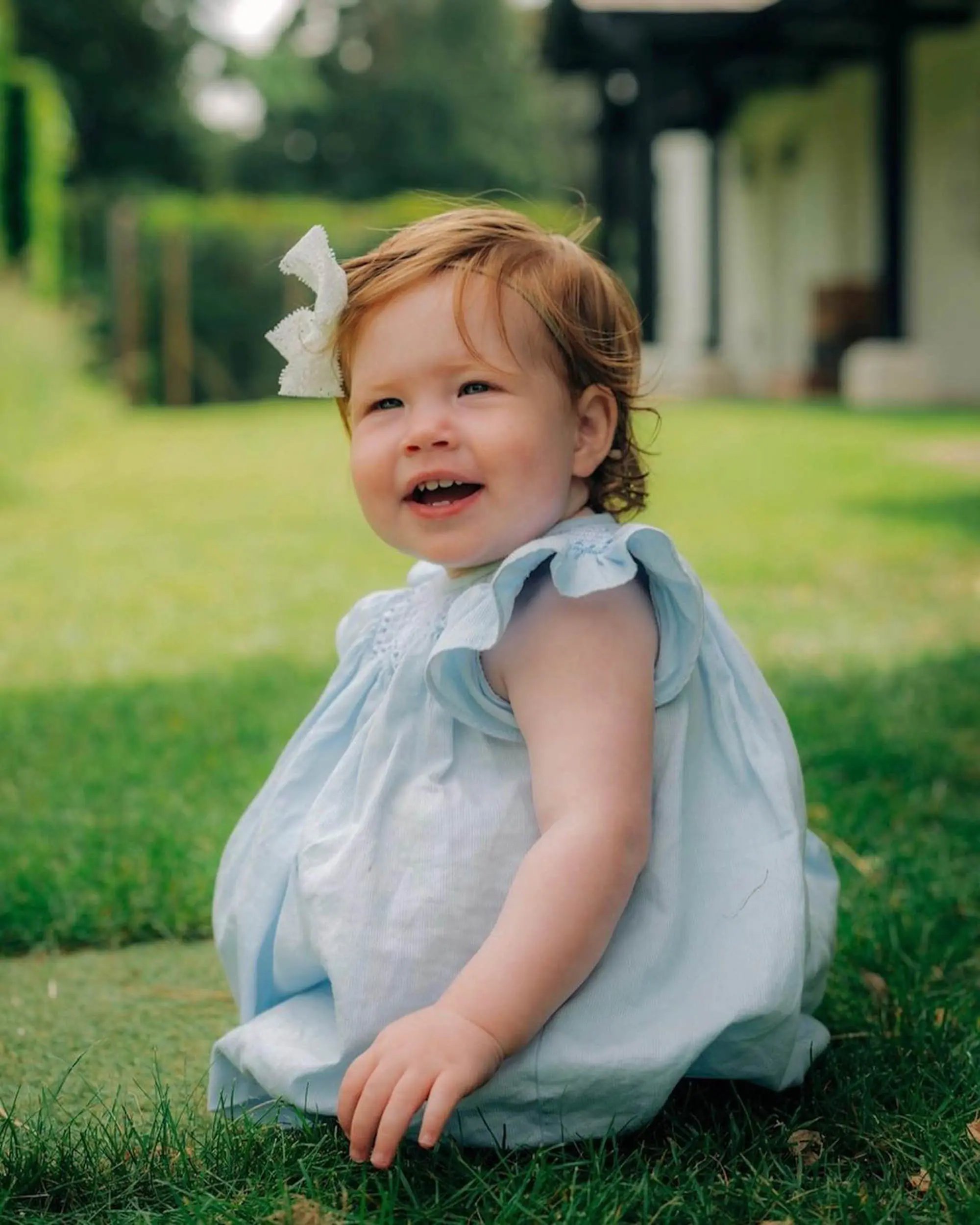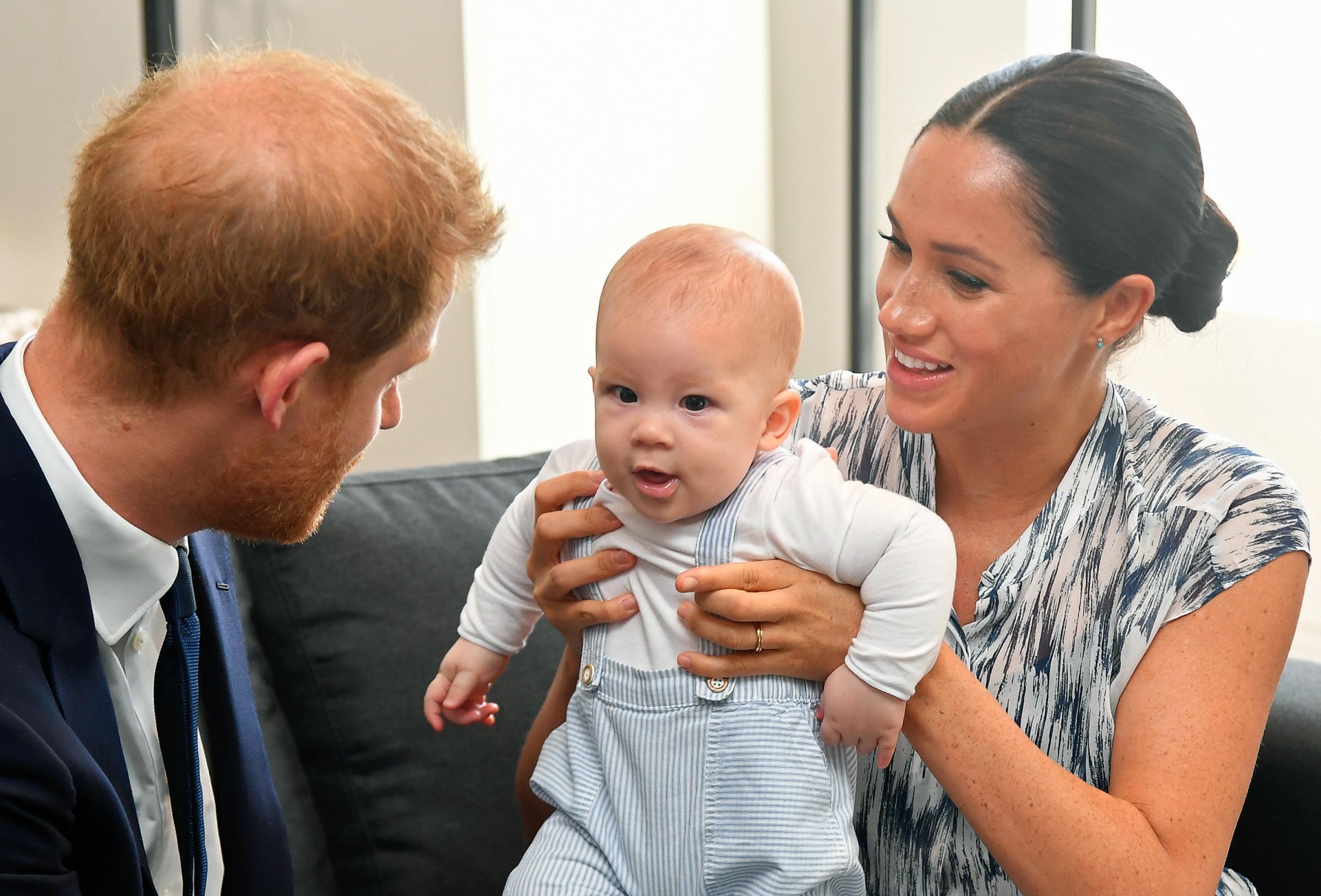
As Prince Harry and Meghan Markle announced the christening of their year-old daughter Lilibet Diana on Wednesday, a statement sent to media called her a “princess”—seeming to reveal that the couple plan to use royal titles for their children.
Under British royal protocol, both Lilibet and Archie Mountbatten-Windsor, the couple’s 3-year-old son, are entitled to the titles of princess and prince as grandchildren of the sitting U.K. monarch. The children were eligible for the titles since Charles became king following Queen Elizabeth II’s death in September.
Princess Lilibet was baptized by the Archbishop of Los Angeles last Friday, a spokesperson for the couple said Wednesday. People magazine reported that Harry and Meghan invited King Charles, Queen Consort Camilla, as well as Prince William and Kate Middleton—the Prince and Princess of Wales. They did not attend.

Persons born into senior positions of the royal family are automatically given titles. In 1917, King George V decreed that “the grandchildren of any such sovereign in the direct male line (save only the eldest living son of the eldest son of the Prince of Wales) shall have and enjoy in all occasions the style and title enjoyed by the children of dukes of these our realms.” Queen Elizabeth II updated the centuries-old rule in 2012 to make all the children of Prince William and Kate Middleton “princes and princess,” because only Prince George initially inherited the title as the eldest great-grandson.
But until now, whether or not the children of Harry and Meghan, the Duke and Duchess of Sussex, would receive titles remained a question. Harry and Meghan’s relationship with the British royal family has long been strained, exacerbated by Harry’s tell-all memoir published in January. Harry and Meghan publicly stepped back from royal duties in 2020 and moved to California, though they did not renounce their royal titles. They were recently told to vacate their U.K. home, which they used during visits, on the grounds of Buckingham Palace’s Windsor castle estate.
More from TIME
When Archie was christened in 2019, he didn’t receive a royal title, but the reasons for it were unclear. Observers speculated it was part of the couple’s planned departure from royal life, but Markle, a biracial American, claimed to Oprah Winfrey in 2021 that a title was denied because of racism. The Palace denied such allegations and insisted that not affixing a royal title to Archie was “protocol.”
After the Queen died in September 2022, the titles of Lilibet and Archie were up in the air as King Charles eyed paring down the British monarchy. By December 2022, Charles was still reportedly undecided whether to confer the titles of Prince and Princess to Archie and Lilibet, especially after Harry and Meghan’s series on Netflix in November and the then-pending release of Harry’s book Spare. Lilibet and Archie’s titles aren’t reflected on Buckingham Palace’s website yet, but that will reportedly “be updated in due course.” And Charles, as the sitting monarch, still retains the power to revoke these titles.
Giselle Bastin, a U.K. royal expert at Flinders University in Adelaide, says that parents of eligible royal children ultimately decide how and whether their children use a title. As for why now, Bastin tells TIME, “William’s and Catherine’s children have always been known by their Prince and Princess titles, and Harry may think it time that his children enjoy the same birth right.” The couple may wish to signal that their children’s connection to British royalty remains intact, she says. Or it could be more practical than that: when Meghan spoke previously about Archie’s lack of a title, she had expressed that their interest in him receiving one was for the security protections that come with it.
Other royals of similar rank to Prince Harry have made different choices over the years. Princess Anne and her then-husband Mark Phillips declined offers to bestow royal titles on their children Peter and Zara after their births in 1977 and 1981. Likewise, Prince Edward and his wife Sophie decided only to give their children “courtesy” titles of Lady Louise and Viscount Severn James rather than bestow “Prince” and “Princess,” Bastin adds.
More Must-Reads From TIME
- The 100 Most Influential People of 2024
- Coco Gauff Is Playing for Herself Now
- Scenes From Pro-Palestinian Encampments Across U.S. Universities
- 6 Compliments That Land Every Time
- If You're Dating Right Now , You're Brave: Column
- The AI That Could Heal a Divided Internet
- Fallout Is a Brilliant Model for the Future of Video Game Adaptations
- Want Weekly Recs on What to Watch, Read, and More? Sign Up for Worth Your Time
Contact us at letters@time.com